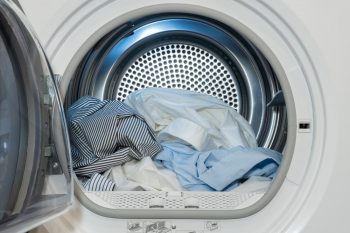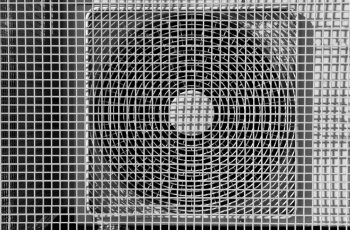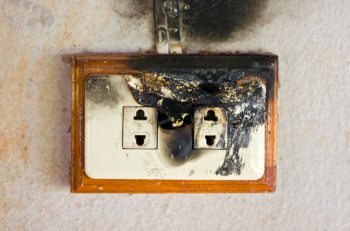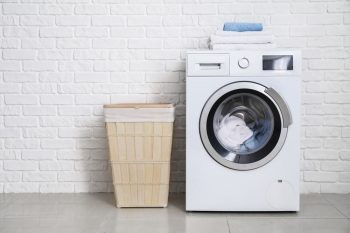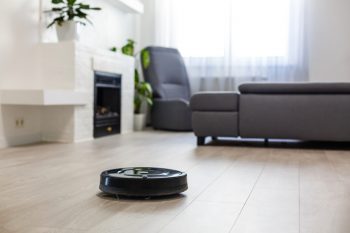
Washing machines are an essential part of our daily lives. They make our chores easier, but they can also cause frustration when they stop working correctly. One of the most common problems you might encounter with your washing machine is when it stops spinning. This post will explore the reasons why a washing machine might stop spinning and how to troubleshoot these issues.
A washing machine may stop spinning due to an overfilled or unbalanced load, the machine itself not being balanced, a lid switch malfunction, a burnt-out motor or broken belt, or drainage issues. Regular maintenance can help prevent these issues. However, if the problem persists, it’s recommended to consult a professional.
Overfilled or Unbalanced Load
An overfilled washing machine can prevent the drum from spinning correctly. Overloading can cause the machine to become unbalanced, making it difficult for the drum to rotate. On the other hand, an underfilled machine can also cause imbalance, as clothes might accumulate on one side of the drum.
To avoid this issue, ensure to fill your washing machine appropriately, allowing clothes to move freely and be properly cleaned.
Washer Not Balanced
If your washing machine itself is not balanced correctly, it could cause issues with spinning. An unbalanced washer can harm the drum, prevent the spin and drain cycles from completing, and lead to a noisy operation. Ensure your machine is level to avoid these problems.
Lid Switch Malfunction
The lid switch on a washing machine is a safety feature that stops the machine from spinning when the lid is open. If this switch is broken or misaligned, it could prevent the machine from spinning even when the lid is closed.
To diagnose if a problem with the lid switch is causing the machine to stop spinning, you can use a multimeter to test the switch for electrical continuity. If it does not read any continuity, then your lid switch is indeed faulty and needs to be replaced.
Burnt-out Motor or Broken Belt
The motor system in a washing machine plays a crucial role in spinning the drum and agitating the clothes during the washing process. A burnt-out motor can prevent the spin cycle from functioning properly. Similarly, a broken or worn-out belt can cause the washer to stop spinning.
If you suspect a motor or belt issue, it is best to consult with a professional appliance repair technician.
Drainage Issues
Drainage issues can also cause your washing machine to stop spinning. If the machine isn’t draining properly, it may not spin. A blocked drain pump can prevent the machine from spinning due to improper drainage. Regularly clean the drain pump and check the drain hose for any blockages.
Preventative Maintenance
To prevent your washing machine from stopping its spinning process, regular maintenance is crucial. Avoid overloading or underloading your machine, keep it level, regularly inspect and replace hoses, clean the lint filter, and use the recommended amount of detergent. Regular maintenance can keep your washing machine running smoothly and avoid issues with the spinning process.
Risks of DIY Repairs
While some common problems can be addressed without professional help, attempting to fix a washing machine without proper knowledge and tools can lead to further damage or even pose safety risks. Electrical risks, personal injury, further damage to the appliance, increased repair costs, safety hazards, inefficient repairs, and voiding warranties are all potential risks of DIY repairs.
In conclusion, several reasons could cause your washing machine to stop spinning, from simple issues like an unbalanced load to more complex problems like a burnt-out motor. Regular maintenance can help prevent these problems. However, if you’re not confident in your abilities to fix the issue, it’s best to consult a professional.
Frequently Asked Questions
What is a multimeter and where can I purchase one?
A multimeter is a tool used to measure electrical properties such as voltage, current, and resistance. It’s commonly used in a variety of fields, including appliance repair. You can purchase a multimeter from any hardware store or online retailers like Amazon.
How often should I perform maintenance on my washing machine?
It’s recommended to perform maintenance on your washing machine every three to six months. However, this can vary depending on the model and use of your machine. Always refer to your user manual for specific maintenance guidelines.
What are the signs of a burnt-out motor in a washing machine?
Signs of a burnt-out motor may include the washer not agitating, the drum not turning, or an unusual burning smell. If you suspect a burnt-out motor, it’s best to call a professional for a diagnosis.
How do I know if my washing machine is balanced correctly?
A washing machine is balanced correctly when it’s sitting flat on the ground with all four feet touching the floor. If your machine is shaking excessively or making loud noises during the spin cycle, it may be unbalanced.
Is it safe to use more detergent than recommended?
No, it’s not safe to use more detergent than recommended. Excessive detergent can cause problems with your washing machine, such as over-sudsing and residue buildup. Always follow the detergent manufacturer’s instructions for best results.

